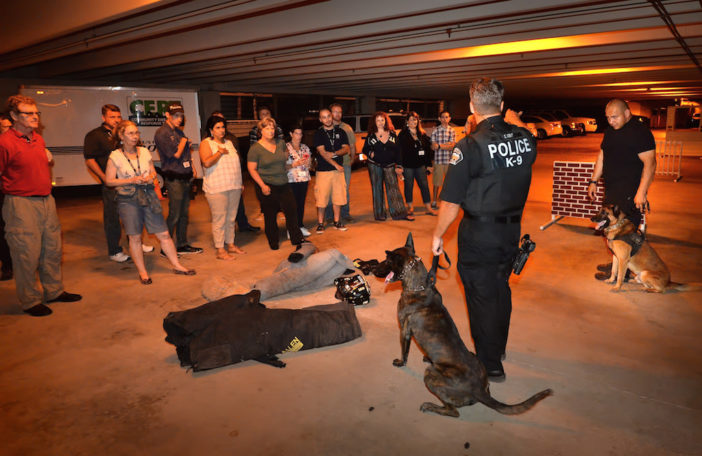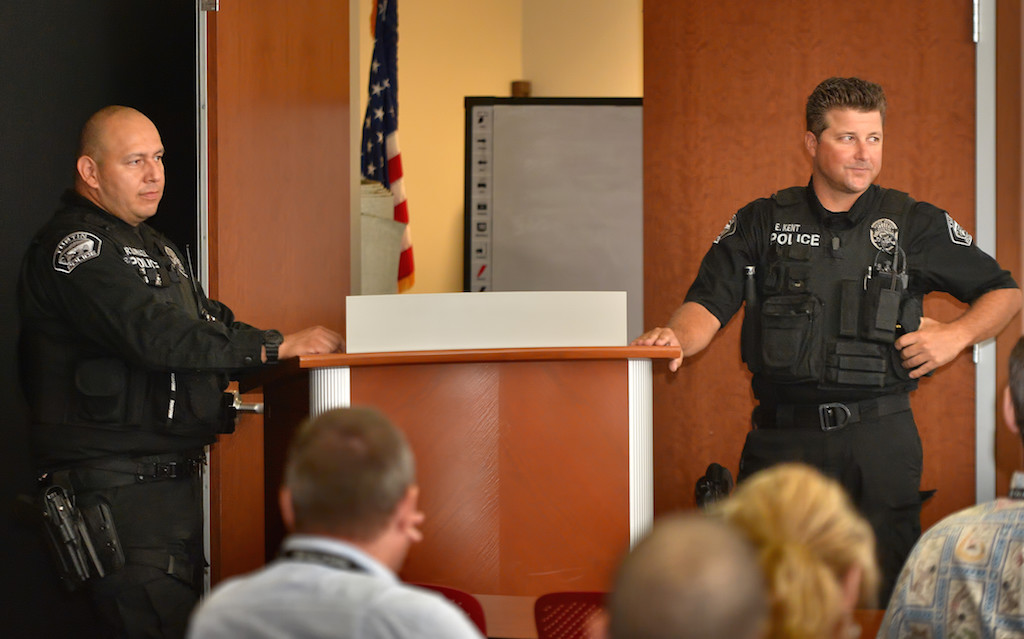They can clear an eight-foot wall in a single jump, sniff hidden narcotics in seconds, hear 15 times better than the average person and slobber all over their colleagues without consequence.
They are Bravo and Riggs, Tustin’s Belgian Malinois and Dutch Shepherd police officers. At a recent TPD Citizen’s Academy class, they took center stage.
Officer Eric Kent, Riggs’ partner, said police dogs apprehend criminals, free up other officers, protect their partners and the public and use their highly sensitive noses to locate narcotics and criminal suspects.
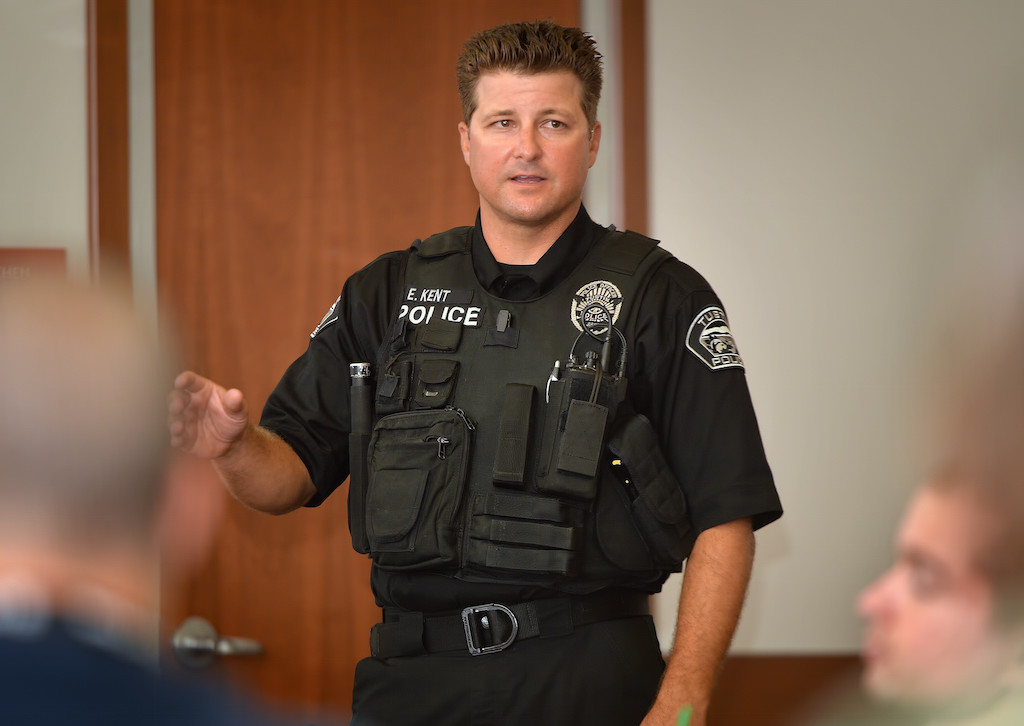
Tustin Officer Eric Kent talks to a citizens academy class about the Tustin Police K-9 Unit.
Photo by Steven Georges/Behind the Badge OC
During the class, Officer Rene Barraza demonstrated the skill of his partner, Bravo. Within seconds, Bravo found planted heroin inside the back bumper of a truck.
Kent explained that K9’s are trained to search for narcotics in a way that makes it fun for them – rewarding them when they find toys laced with the scent of drugs.
“All they want is that toy. They think they’re playing,” he said.
Barraza recounted a traffic stop when Bravo alerted at the floor panel of a vehicle in search of narcotics. Bravo found 11 kilos of cocaine wrapped in cellophane, coffee and ground peppers.
“He smelled all of the items, but only alerted me when he smelled the cocaine, because that is what he was trained to do,” he said.
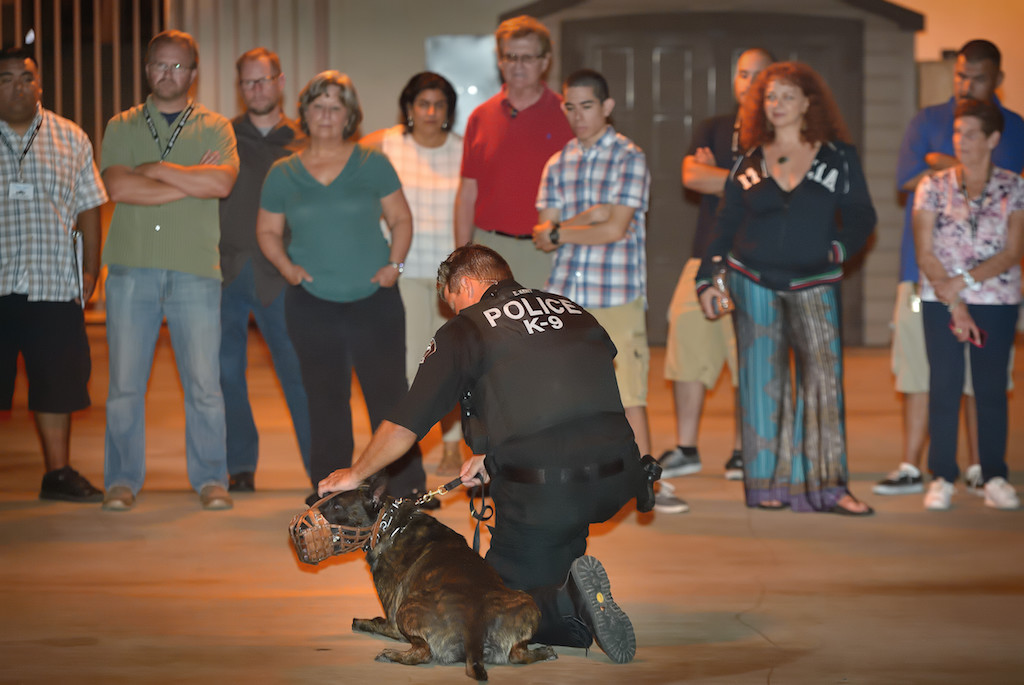
With the muzzle on Riggs, Tustin Officer Eric Kent gets his dog ready before an attack demonstration on a fellow officer in the Tustin PD parking lot.
Photo by Steven Georges/Behind the Badge OC
The demonstration continued with a mock criminal apprehension, in which Riggs dashed toward Barraza, who pretended to be a suspect. Riggs bit the officer in a protective arm pad and knocked him to the ground immediately.
Most of the time, just the threat of unleashing a dog convinces a suspect to surrender.
“Eighty pounds running at you for 50 yards — that’s about 120 pounds of pressure hitting you hard, not to mention the impact of the bite,” he said, noting that suspects would be smart to give up.
“There needs to be a near-perfect social balance, with aggression only when necessary, which is a testament to the fact that each K9 we have is truly special,” Kent said.
Handlers and the K9s develop a close bond, the handlers said.
“They’re constantly reading eye movements, if I am tense, they can sense fear and they adapt to it. They want to protect me if they have to and they get ready to act when they read dangerous situations,” Barraza said.
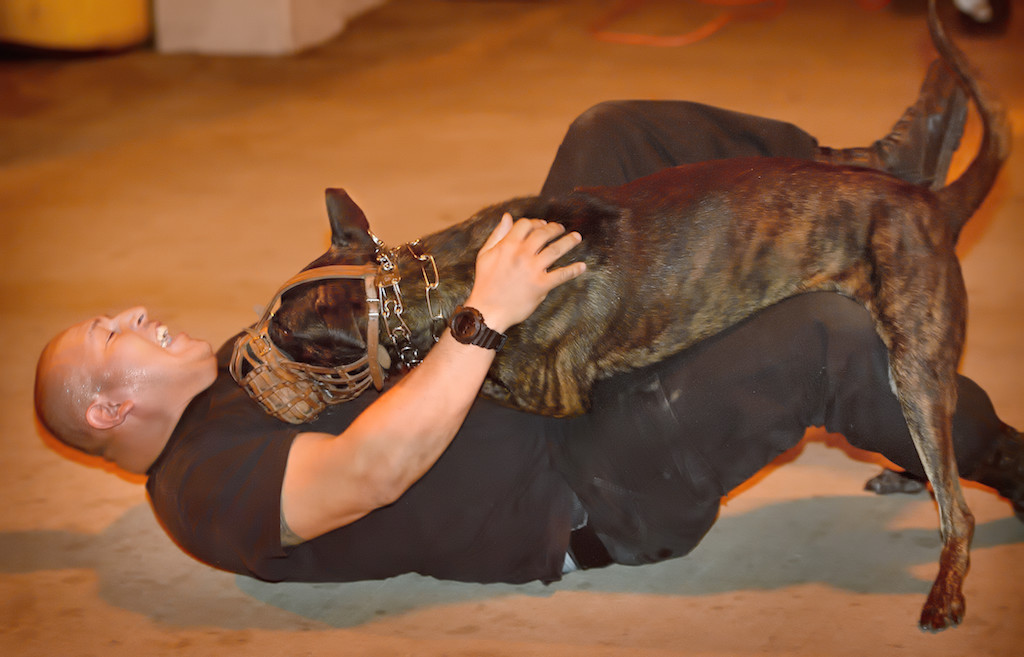
Tustin PD Officer Rene Barraza plays the part of a bad guy as Riggs goes after him, with a muzzle on, during a Tustin PD citizens academy K-9 demonstration.
Photo by Steven Georges/Behind the Badge OC
K9 officers also generally live with their partners.
“We take them home with us, they are part of the family. There are a lot of cops in the department vying for the K9 spot. But I’m not going anywhere. For me, this is a lot of fun. There is no other job I’d rather be doing,” he said.
Student Manuel Hernandez, 25, was impressed with the training and the K9’s reaction time to commands.
“How the K9’s went from passive to alert so quickly. The way they handle commands from the officers is such a smooth transition,” he said.
 Behind the Badge
Behind the Badge
